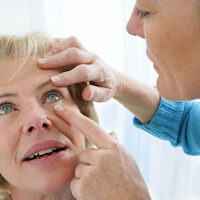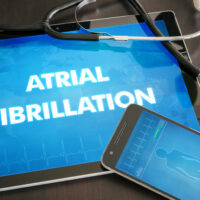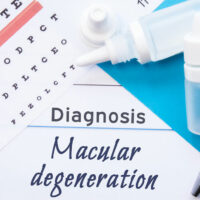11 advantages of fish oil supplements

Fish oil is a rich source of two essential omega-3 fatty acids, namely eicosapentaenoic acid (EPA) and docosahexaenoic acid (DHA) . Omega-3s are responsible for helping create new cells and tissues in the body, providing energy, and supporting overall health. They are naturally found in a variety of fish, such as mackerel, herring, tuna, trout, sardines, and salmon. To ensure daily intake of omega-3s, many people also opt for fish oil supplements, which may offer benefits like:
Supporting heart health
According to several studies, people who consume fish regularly have lower rates of heart disease. This is because fish or fish oil helps to:
- Lower triglyceride levels
Triglycerides are a type of fat in the body. Their presence in high levels can lead to fatty build-up in the artery walls, increasing the risk of heart disease and stroke. Omega-3s can help lower the levels of triglyceride. - Reduce the risk of arrhythmia
The term arrhythmia refers to an abnormal heartbeat. Some varieties, such as Atrial fibrillation (AFib) can pose serious health issues. Although fish oil supplements are not an effective treatment strategy, their omega-3 content may help reduce the risk of arrhythmia. - Slower the rate of plaque build-up
Plaque is a unique mix of fat, cholesterol, and calcium. When this collects in the arteries, it can reduce blood flow, increasing the pressure on the heart. However, regular intake of omega-3 can have anti-inflammatory effects and improve the function of endothelial cells that line the blood vessels. This may slow down the rate of plaque build-up in the body. Please note that research in this field is still ongoing. - Lower blood pressure
High intake of omega-3s has also been reduced to a slight reduction in systolic and diastolic blood pressure. This improves overall heart health and can reduce the severity of or mortality from heart diseases.
Additionally, fish oil has also been reported to improve cardiovascular function during stressful tests and stabilize atherosclerotic lesions.
Treating mental health conditions
Omega-3s are essential for brain function as well. Research suggests that the regular consumption of omega-3s can help lower inflammation in the brain, thus preventing the onset or slowing the progression of mental health conditions like anxiety and depression.
Reducing inflammation
Omega-3s are well-renowned for their potent anti-inflammatory properties. Fish oil supplements can help better manage chronic inflammation, often associated with diabetes and certain heart conditions. It can also help reduce pain, swelling, and stiffness caused by rheumatoid arthritis.
Improving eye health
Eye health is impacted by several factors, including omega-3 fatty acids. Getting inadequate amounts of this nutrient could increase the risk of eye diseases, such as age-related macular degeneration (AMD) and glaucoma.
Promoting healthier skin
The skin also contains a lot of omega-3s. Fatty fish or fish oil supplements can boost skin health by hydrating the skin, regulating the production of oils, minimizing breakouts, and reducing the risk of skin disorders such as psoriasis and dermatitis.
Supporting fetal development
Omega-3 fatty acids also play a vital role during pregnancy. They can help boost cognitive and visual development in fetuses and reduce the risk of allergies. As a result, including fatty fish or fish oil supplements in one’s meal regime is often recommended during pregnancy. However, one must avoid consuming fish with high levels of mercury (such as shark or king mackerel) during this time.
Lowering liver fat
The liver processes most of the fat in the body. Excess fat is often stored here, leading to the development of a condition called Nonalcoholic fatty liver disease (NAFLD). Fish oil supplements can help improve liver function, lower inflammation, and reduce symptoms associated with NAFLD.
Improving attention spans in children
Preliminary studies suggest that fish oil supplements may also help improve perceived hyperactivity, inattention, impulsiveness, and aggression in children, benefiting early life learning. This can be particularly helpful for children with neurodevelopmental conditions such as attention deficit hyperactivity disorder.
Preventing symptoms of cognitive decline
Many people experience cognitive decline with old age. However, regular omega-3 intake can help slow this down by as much as 20%. This can be particularly helpful for managing conditions such as dementia, Parkinson’s disease, schizophrenia, and memory loss.
Reducing asthma symptoms and allergy risk
Asthma and allergies have become commonplace. According to some early studies, omega-3 supplements can help reduce asthma-related inflammation or the severity of symptoms. However, more conclusive evidence is required to buttress the same.
Supporting bone health
Bone mass reduces tremendously after the age of 40. That is why it is important to maintain healthy bones. Certain fish oil supplements contain vitamin D, which helps the body absorb calcium. This can help improve or stabilize bone mineral density (BMD).
According to the NIH, the recommended daily dosage for omega-3s is 1.6 grams for men and 1.1 grams for women. Those looking for plant-based sources of omega-3s can turn to foods like ground flaxseeds, flaxseed oil, walnuts, chia seeds, canola oil, soy oil, soybeans, and tofu. Others can take fish oil supplements commonly found in capsule or liquid form. Although these are generally safe to consume, one must always consult their doctor or primary care physician about how much fish oil to take. Those with bleeding disorders or seafood allergies must exercise special caution before turning to such supplements.





